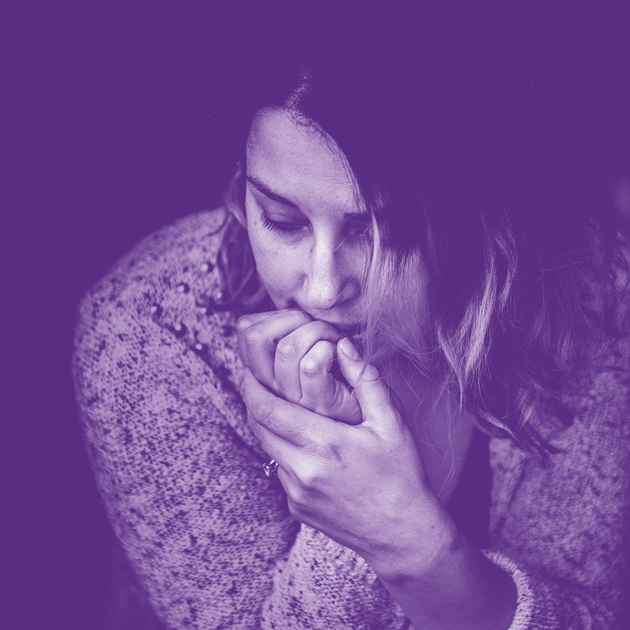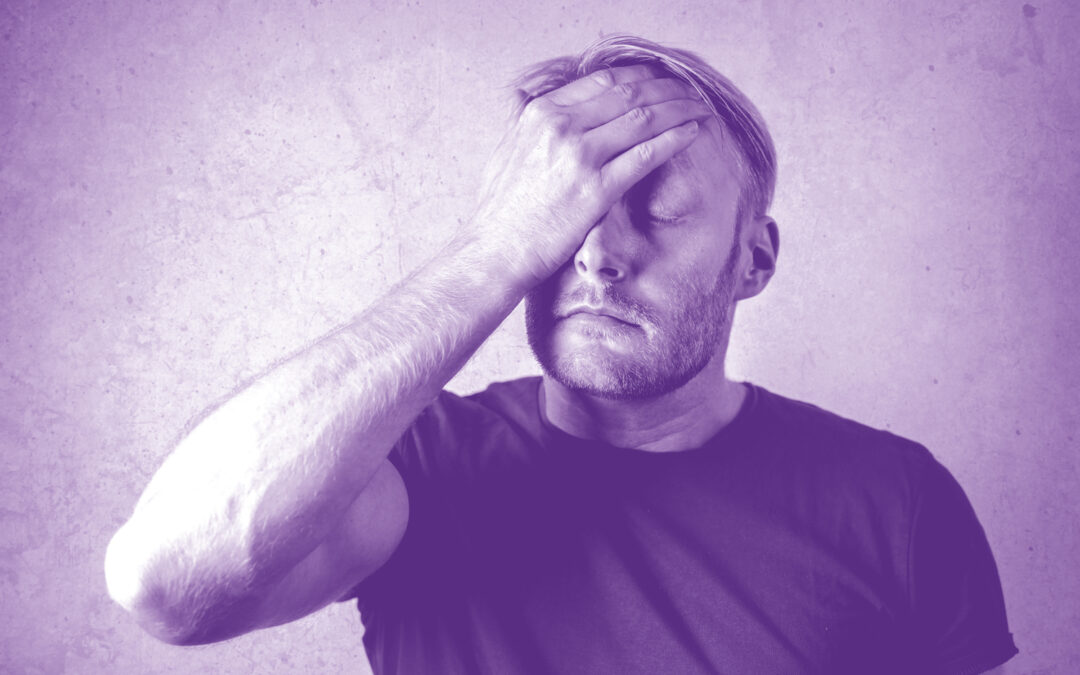Coping with the Fear of Substance Withdrawal
If you struggle with addiction, the fear of physical and emotional withdrawal from your substance of choice can keep you using long after you want to quit. Severe detox symptoms are most commonly associated with alcohol and opioids. As the body’s tolerance to these substances increases, individuals find that they need more of the substance not to get high, but just to feel normal and make it through the day. Doctors refer to this situation as therapeutic dependence. If this scenario sounds familiar, learn more about what to expect during withdrawal and explore strategies that can help you conquer your fear and pursue a sober lifestyle.

Common Drug Withdrawal Symptoms
Physical side effects of withdrawal can be quite severe with heroin, prescription opioids and alcohol dependency. During detox, you may experience cold sweats, fever, tremors, aches, nausea and even seizures, as well as psychological effects like anxiety and mood swings. Alcohol detox is also associated with hallucinations and dangerous cardiovascular symptoms. Withdrawal from amphetamines and stimulant medications can cause pronounced mood swings and other emotional issues, including irritability, insomnia, depression and anxiety. The fear of the physical and psychological withdrawal from substance use can be debilitating for a person who wants to get sober, especially when combined with the intense cravings that occur during this type period.
What To Expect During Withdrawal
Frightening stories and movies that depict the detox process can create an overwhelming sense of anxiety in a person struggling with substance abuse. Although symptoms can be quite uncomfortable, they often pale in comparison with the everyday difficulties of living with active addiction. Most people find that withdrawal symptoms resolve within 72 hours, although opioid withdrawal can last several weeks. In addition, a medically supervised withdrawal program provides prescription drugs and health care for relief of detox symptoms and prevention of serious complications such as seizures and heart attacks.
Preparing for Withdrawal
If you are considering drug rehab but have fears about the withdrawal process, talk to your primary care physician, an intake counselor or another health care provider about your concerns. He or she can provide information about the symptoms you may experience and the therapeutic treatment options to relieve your discomfort and illness.
You may also want to write a list of pros and cons to help you decide whether to quit using substances despite your fears. Many people who take this step find that the discomfort of detox pales in comparison to the benefits of giving up drugs or alcohol and working toward sobriety.
Initial withdrawal symptoms typically arise within six hours of discontinuing use. You should know that while physical symptoms have a short lifespan, psychological symptoms can be ongoing after detox.
Medically Supervised Withdrawal
You can experience a safer more comfortable detoxification period with the help of a medical detox center that offers 24-7 monitoring for patients going through withdrawal. Some medications the doctor may prescribe include:
- Ativan or Valium to ease anxiety associated with alcohol detox
- Naltrexone, buprenorphone or methadone for opioid cravings
- Trazodone for insomnia
- Librium for agitation
- Clonidine for physical discomfort
The center’s health care providers will administer the recommended dosages of these medications while monitoring your vital signs, fluid levels, electrolytes and blood chemistry to be aware of signs of complications. Detoxing should not be attempted at home because you are at risk for life-threatening issues such as stroke and seizure.
Self-Care During Withdrawal
Even though the acute phase of drug detox lasts up to a week, your body will take several months to return to its presubstance state. Support your recovery by eating healthy meals, including a variety of fruits and vegetables, whole grains and low-fat dairy. In the first days after detox, stick to a bland diet of foods like toast, soup and bananas while you regain your appetite.
Drink plenty of water to flush the toxins out of your body. Many people find that sticking to nutritious foods and staying hydrated helps with ongoing emotional symptoms like irritability and mood swings. Talk to your doctor if you have trouble getting enough sleep. On the other hand, many people experience fatigue during withdrawal, so it’s important to take time off from your normal activities and rest as much as possible.
Take up new hobbies that keep you busy so you won’t dwell on your cravings and negative emotions. Try something that keeps your mind and hands busy, like volunteer work, reading, crafting or exercise. A creative outlet such as art or music can often be therapeutic. Yoga and mindfulness meditation can also help ease the depression and anxiety associated with drug withdrawal. Many people report good results from acupuncture and other forms of complementary and alternative medicine.
After completing a drug treatment program, ask for a referral to a sober living home or group support. Having a substance-free community significantly increases the likelihood of successful recovery from substance use.
The Role of Counseling
In addition to medical withdrawal, effective treatment requires intensive therapy for substance use disorder and co-occurring conditions. Psychological care is an important part of substance abuse rehabilitation even among patients who do not have an underlying mental health disorder. In addition to helping you cope with the fear of detoxing from your substance of choice, clinical counseling can provide tools to cope with sober living and reduce your chance for relapse. For example, a therapist can help you build new social networks outside of friends who use substances, cope with a return to environments you associate with drug use and deal with life’s stresses and disappointments.
In therapy sessions, you will also address the reasons why you used drugs in the first place. You may have a fear of facing underlying issues in your past as well as life complications that resulted from your substance use. In fact, taking steps to resolve these internal conflicts can create a sense of inner peace that supports your journey toward sobriety.
Specialized approaches such as cognitive behavioral therapy can be helpful for individuals who struggle with substance use. With CBT, you learn to replace negative thoughts and behavior patterns that support drug and alcohol use with healthy patterns that support a sober lifestyle. Many individuals find a sober community through programs like Narcotics Anonymous and Alcoholics Anonymous. Family therapy can help facilitate the return to family life for a partner or parent who is living with addiction and in active recovery.
Handling Relapse
Relapse, or the return to substance use, is a common stumbling block for those struggling with substance use. In fact, most people relapse several times before maintaining long-term sobriety. Rather than beat yourself up for a setback, write down the possible triggers of a relapse, such as old friends, hangouts or life issues. Make a plan for dealing with drug or alcohol cravings and take steps to surround yourself with your support system if you fear you may use drugs again. Keep in mind that a return to chronic substance use will require another withdrawal process when you decide to discontinue use again.
Fear of the detox process is a very real barrier to seeking care for substance use disorder. This fear may manifest as anxiety, depression, panic attacks, numbness, mood swings or sleep disturbances. If you or a loved one is experiencing therapeutic dependence to drugs or alcohol, contact the team at Clean Recovery Centers in Tampa today. We provide comprehensive medical detox and both inpatient and outpatient drug treatment programs, as well as transitional housing for men and women in recovery.


